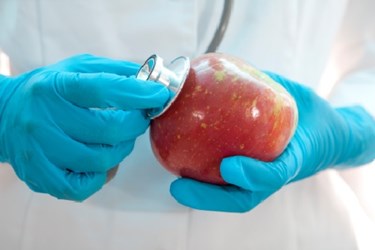Does The Public View Your Brand As Safe?
By Laurel Maloy, contributing writer, Food Online

As the public’s perception is the public’s truth, the opinion of the masses can affect you company’s image as well as its pocketbook
September is National Food Safety Month. The FDA will be targeting the consumer with messages of safe food handling, with a particular focus on groups with a higher risk of contracting foodborne illnesses. As an industry, there is a responsibility to prevent foodborne illness at its source. Prevention is the key to food safety for all consumers, but especially to the groups most at risk.
This is the ideal time to draft and work your plan. Bear in mind that “tooting your own horn” will be seen favorably in the public’s eye. For example, Perdue Farms, most recently in the news for a Class II recall, announced very publicly this week that it will no longer use human antibiotics. It made national news and will no doubt lead to increased sales. Cargill did the same when announcing its intent to phase out growth-promoting antibiotics when raising livestock on its farms.
Protect Your Brand: Ensuring Food Safety & Compliance With A Quality Management System
Consumer groups have long been advocating for reduced use of antibiotics in livestock commonly used by humans, citing the increase of antibiotic-resistant germs. The American Medical Association (AMA) has weighed in on this subject. The AMA recently voiced its concern for the fact that prophylactic treatment with human antibiotics results in non-responsiveness to those most commonly used in the medical community. The Centers for Disease Control and Prevention (CDC) has also called for routine human antibiotic use in livestock to be phased out. Ironically, some of these same antibiotics are utilized to treat foodborne illnesses, but are no longer effective against certain strains of bacteria.
A Best-Practice Approach To Implementing A Food Safety Management System
The public wants transparency. The public also wants to feel that food producers care about their health, first and foremost, and especially before a company’s profits. Now, during National Food Safety Month, is the ideal time to start a campaign to gain the consumer’s trust and to improve your brand. Food safety is big news, not only for food processors, but for the consumer. All of the following products are touted by the FDA as foods to avoid for those at a greater risk for contracting a foodborne illness:
- Fresh fruits and vegetables, including lettuce and salad mixes
- Raw or undercooked meats, poultry and seafood, including refrigerated smoked seafood
- Products made with raw milk, such as yogurt
- Soft cheeses made from unpasteurized milk, such as Brie, Camembert, Feta and Mexican-style cheeses
- Fresh salads made without added preservatives, such as chicken salad, ham salad, or seafood salad prepared at a deli or offered pre-packaged in the grocery store
- Processed meats, such as hot dogs, cold cuts, deli-style meats, poultry products, smoked fish, and sausage
- Raw sprouts of all kinds
- Meat spreads or refrigerated pâtés, if unpasteurized
- Anything containing raw or undercooked eggs, especially if homemade. Caesar salad dressing, raw cookie dough and cake batters are examples
These are the foods consumers are most concerned about. These are the foods that are making headlines and that result in the majority of foodborne illness outbreaks. Producers of all of these foods have a greater responsibility to focus on prevention of foodborne illnesses. Advertising the improvements made, the expenditure of monies to increase food safety at its source, and a company’s commitment to furthering the fight against foodborne illness is guaranteed to garner consumer trust. A company branded as one that cares, will see the profits follow. How does the public rate your company’s brands?
